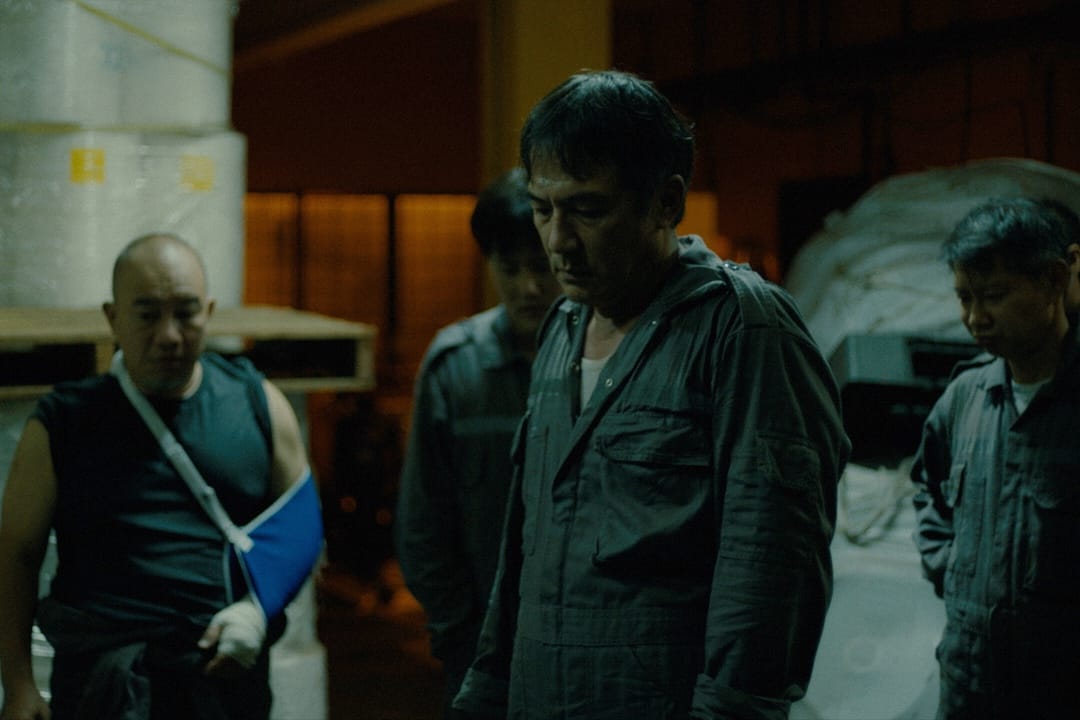Can Southeast Asian Indie Cinema Continue Its Momentum In 2023?

I’m not sure why I thought that compiling a list of upcoming projects from Southeast Asia, and looking at recent tweaks to the region’s funding programmes, would be a quick and easy job to do. It has taken weeks to compile, and while I finally stopped at 30 projects, I could have kept going, which probably means there’s a lot of activity in the region.
Following the last edition of Streamlined, which looked at the success of Southeast Asian indie cinema over the past few years, this edition asks how sustainable that success is, given current market realities and the special circumstances of the region. Writing it made me realise that it’s impossible to make predictions. All Streamlined can do is track the journeys that other people are brave enough to make.
And speaking of journeys, congratulations to two Southeast Asian films that have found a safe harbour at least: Kenneth Dagatan’s In My Mother’s Skin, which just got picked up by Amazon Prime ahead of its Sundance premiere, and Jow Zhi Wei’s Tomorrow Is A Long Time, which is heading to Berlin. European festivals remain key in helping Asian films reach an international audience, but opportunities are not always abundant. More on this below..
As discussed in the last edition of Streamlined, one of the biggest factors contributing to the growth of Southeast Asian indie cinema has been the emergence of funds supporting regional co-production – in particular those launched by the Singapore Film Commisison (SFC), the Film Development Council of the Philippines (FDCP) and Taiwan Creative Content Agency (TAICCA). But just before last year’s autumn festival season kicked off, two film agency chiefs who had been instrumental in the creation of these funds – SFC head Joachim Ng and FDCP chair Liza Dino – left their posts.
This kind of turnover is inevitable at government agencies anywhere in the world, but in countries where funding programmes are relatively new or intermittent, these initiatives have a habit of disappearing with elections and personnel changes. So producers in the region were watching nervously. However, so far it appears that there have been some tweaks, but no major disruption to the support systems in the region.
Chris Tan, who has previously held executive positions at beIN Asia Pacific and StarHub, has taken over at Singapore’s IMDA as Director of Media Industry Development and the SFC. Singapore, like Taiwan, has a relatively long history of supporting its filmmakers, with programmes that are second only to Korea in the region in terms of supporting filmmakers from film school through shorts and their first features, then on to that tricky second film and beyond.
In August last year, the SFC changed the name of its Singapore Co-production Grant (SCPG) to the ‘Long Form Content Grant – SEA Co-Production’, but the basic premise and S$300,000 cap remain the same. What has changed is that Singaporean directors are now eligible for the fund, in addition to directors from other SEA nations; the eligibility criteria for directors and producers has been streamlined; and the grant is no longer based on spend in Singapore.
“It’s now what we deem an ‘outcome-based grant’, meaning the applicants need to deliver the final project and proof that at least 10 Singaporeans are involved in meaningful roles,” an SFC spokesperson told Streamlined.
TAICCA has also made some adjustments to its Taiwan International Co-funding Program (TICP), but again it’s mostly a case of finessing, changing the eligibility rules so that non-Taiwanese companies can approach the organisation directly, rather than through a Taiwanese producer. This might be useful in cases where no Taiwanese producer is available, but as Fran Borgia, founder of Singapore’s Akanga Film Asia, notes, “In theory we don’t need a Taiwanese co-producer, but in reality it helps to have a local partner. And we still need to justify Taiwanese spend.”

Over in the Philippines, veteran actor Tirso S. Cruz III was appointed as FDCP chair following Dino’s departure and the council was out in force at last year’s Busan film festival talking up its rebates and funding schemes. In addition to rebates for foreign productions shooting in the Philippines, the FDCP offers the International Co-production Fund (ICOP), for co-pros directed by Filipino filmmakers, and the ASEAN Co-production Fund (ACOF) for films from Southeast Asian directors.
There was a wobble a few weeks ago when the FDCP cancelled the most recent funding round, but the council met with local producers earlier this week to explain that the funding will continue, it’s just that the frequency is changing from three to two cycles per year.
“It’s to give us enough time to accommodate all the applications, process their contracts and meet them personally to address their concerns,” says Marielle Lacuesta of the FDCP’s FilmPhilippines Office (FPO). “We’re currently receiving 12-15 projects per cycle and are expecting even more this year.”
The Philippines will also continue to host Full Circle Lab, the fifth edition of which is scheduled to take place in Manila from March 27-31. Co-organised by the FDCP and Europe’s Tatino Films, the lab has previously had projects such as Autobiography, Ajoomma and Stone Turtle passing through it. The project line-up for the March edition will be announced soon.
In addition, MyLab, supported by Malaysia’s National Film Development Corp (FINAS) and organsised by Malaysia-born producer Lorna Tee, is on track for a second edition, following its launch online and at Busan last year. MyLab selected eight projects (six from Malaysia, one from Singapore and one from Philippines) for its inaugural edition and there are plans for it to become more regional this year.
So far, so promising. Indonesia is also understood to be developing local and regional support programmes and the Hong Kong Film Development Council recently opened its funding to filmmakers from other Asian countries. Then there are all those funds and labs in Europe that Southeast Asian filmmakers are increasingly tapping in to.
But while co-production is raising budgets, production values and, in some cases, opportunities for international distribution, the sustainability of the wave depends on two factors – how committed government bodies are to long-term development of the film industry, and failing that, whether any of these projects are able to recoup.
“It’s still early days with all this funding, so the results haven’t filtered down yet as to whether the people putting money in are meeting their objectives,” observes Aditya Assarat, a director, producer and co-head of the private Bangkok-based Purin Pictures film fund.
“All these governments are hoping to emulate the success of Korea, at least the ones with money, because there are countries in Southeast Asia that really can’t afford to do this. But at some point, they’re going to start asking some tough questions. How many people are watching these movies? Is there any real benefit to the local industry we’re trying to promote? But I do think there’s a growing acceptance that, in the case of Korea, it took 30 years to get to where they are now.”
But if governments turn out to be too impatient to wait for decades to clutch an Oscar, or decide they have other priorities, and it comes down to a stone-cold business case, Southeast Asian indies face the same issues as producers everywhere else in the world – an influx of streaming money to keep them working, but fewer opportunities to make films (rather than series) or to share in the back-end if a film becomes a success.
“The challenge is that there are fewer people going to theatres, so it’s tougher to present to investors the possibility that the numbers might turn out to be explosive,” says Tan Si En, co-founder of Singapore’s Momo Film Co. “And of course you can talk to the streamers, but unless you’re really powerful, your income will be fixed.”
In Europe, indie producers are joining forces to gain negotiating leverage with the streamers. In most of Asia, the industry just isn’t at the stage where it can create super indies, at least not quite yet. Film festivals remain important to raise first the profile, then the price, of a film that is being sold to theatrical or streaming. But European festivals all appear to have a limited quota for the number of Asian titles they’ll programme in major sections.
Finally, here’s the link to that long-gestating list of upcoming Southeast Asian projects. There are many interesting projects in this list, but how much space is there for them in Berlin, Cannes, Venice and other major international festivals? Why doesn’t the market place more value on a premiere in Busan, Hong Kong or Tokyo? How many of these projects will even find a sales agent that puts a substantial amount of support behind them? And what other options do they have to reach the international market? All questions we need to ask as we move past the pandemic into an uncertain world…
THIS MONTH IN THE TRADES:
AWARDS SEASON:
Asian Film Awards: ‘Decision to Leave’ And ‘Drive My Car’ Lead Nominations
LAB & FUNDING NEWS:
HAF Announces Line-Up Of 28 Development Projects For 2023 In-Person Edition
PRODUCTION NEWS:
BFI, Screen Scotland back Tigerlily Productions’ feature documentary ‘Hong Kong Mixtape’ (exclusive)
'Loev’ Producer Four Line Entertainment Boards Indian LGBTQ+ Romance Film ‘Taps’ (EXCLUSIVE)
Composer Ryuichi Sakamoto, ‘Shoplifters’ Star Sakura Ando Join Hirokazu Kore-Eda’s ‘Monster’
‘RRR’ Star NT Rama Rao Jr. To Start Shooting 30th Film In February For Release In April 2024
CORPORATE:
Chinese Government Taking Stakes in China’s Top Video Streaming Platforms, Says Report
Steve Chung to Head CJ ENM’s Operations Outside Korea (EXCLUSIVE)
‘Parasite’ producer Barunson to collaborate with video game publisher Nexon
Saudi Arabia, Singapore Funds Plow $966 Million Into Korea’s Kakao Entertainment
Japanese Advertising Giant Hakuhodo Takes Majority Stake in India’s MA&TH Entertainment (EXCLUSIVE)
Sony Japan Executive Bill Ireton Steps Down To Launch Independent Production Venture
South Korea’s Wavve Buys K-Content Streamer KOCOWA, Plots Global Expansion
CANCELLED:
CURATED:
Berlinale Series Unveils Eight World Premieres & TV Jury
Pingyao International Film Festival Opens With Wang Mu’s ‘Awakening Spring’
RELEASED:
China Box Office Drops To $4.4B In 2022 Amid Covid Swings, Lack Of Product
Japan box office reaches $1.6bn in 2022 led by ‘One Piece Film Red’
‘One Piece Film Red’, ‘The First Slam Dunk’ Help Drive Toei’s 2022 Box Office To Record US$247M
‘The Roundup’ led South Korea box office in 2022 as recovery continues
SIGNED:
‘The Family Man’ Writer Suparn Varma Signs With CAA (EXCLUSIVE)
SOLD:
Prime Video Picks Up Sundance Flesh-Eating Fairy Midnight Title ‘In My Mother’s Skin’
STREAMING UPDATES:
‘Luther’ Remake ‘Rudra’ Is Most-Watched Hindi Web Series Of 2022 As Disney+ Hotstar Dominates
Mahesh Babu, Chiranjeevi, Anushka Shetty, Ravi Teja Headline 16-Strong Netflix Telugu Film Slate
Ajith Kumar, Dhanush, Karthi, Vikram Headline 18-Strong Netflix Tamil Cinema Slate
Netflix Inks Multi-Picture Deal With Japanese Studio Babel Label (Exclusive)
‘Wura’: Showmax Preps Nigerian Adaptation Of South African Telenovela ‘The River’
OBITUARY:
He Ping Dies: Chinese Director Of ‘Sun Valley’ and ‘Warriors Of Heaven And Earth’ Was 65
Yun Jung-hee, star of Lee Chang-dong’s ‘Poetry’, dies aged 78




